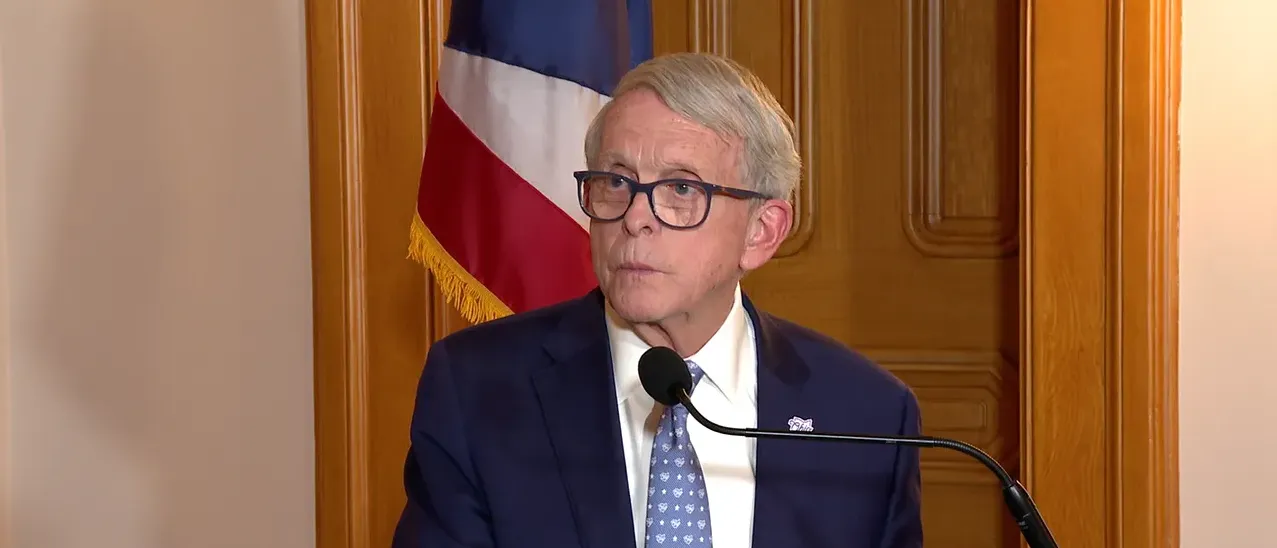On Monday, as the clock approached midnight, all eyes in Ohio's Capitol were fixed on Governor Mike DeWine's desk. Armed with veto power, DeWine was preparing to sign off on the state's $60 billion budget, which critics say threatens to undermine children's well-being, restrict local government authority, and weaken social services. This budget, passed by the Republican majority after tense negotiations, contains provisions that contradict DeWine's longstanding priorities — protecting youth, ensuring access to medical services, and maintaining local autonomy. On Tuesday, July 1st, the governor will hold a press conference to explain his decisions, but sources close to the administration hint that his pen is already poised to veto several contentious items that could reshape Ohio's social landscape.
The Battle for Priorities
The budget, known as House Bill 96, is a complex 5,500-page document proposing $1.1 billion in tax cuts, including a shift to a single personal income tax rate of 2.75%, as well as $600 million from unspent funds toward supporting the new Cleveland Browns stadium in Brook Park. But beneath the shine of tax breaks and mega-projects lie provisions raising concerns among Democrats, educators, and even some Republicans. "Unfortunately, there are many points that will cause real harm to Ohio residents," said State Representative Bride Rose Sweeney, a Democrat from Westlake, in an interview ahead of the deadline. She and her colleagues urged DeWine to exercise his veto to protect vulnerable populations.
DeWine, known for his moderate Republican stance and focus on child welfare, has repeatedly demonstrated a willingness to oppose his own party. In 2023, he vetoed 44 bills, including restrictions on local bans on flavored tobacco products and vaccination requirements at universities, citing public health and local autonomy concerns. This year's focus will likely remain unchanged, with particular attention to children, healthcare, and supporting local communities. "This is a budget for our children," DeWine said on February 3, when presenting his initial proposal of $218 billion, which included a $1,000 child tax credit and full funding for the Cupp-Patterson school funding formula. However, many of his initiatives, including the tax credit, were cut by House Republicans, causing his disappointment.
Key Veto Targets
Among provisions likely to face DeWine’s veto are restrictions on Medicaid access for children aged 0 to 3, which could leave thousands of families without medical coverage. According to Ohio Department of Medicaid data, in 2024, the program served the healthcare needs of 55,000 newborns, half of whom were from low-income families. Cuts to lead poisoning prevention programs — a measure disproportionately impacting children in urban areas like Cleveland and Youngstown — also raise alarms. In 2023, Ohio recorded 4,300 cases of lead poisoning in children, and DeWine previously called for strengthening prevention programs.
Another likely vetoed provision is the elimination of the Advisory Council on Rare Disease Treatment. Created to coordinate care for patients with conditions such as cystic fibrosis, this council was a key element of DeWine's strategy to improve the state's healthcare system. Additionally, the budget cuts funding for mental health programs, including those for LGBTQ+ youth, contradicting the governor’s previous actions in 2023 when he vetoed a ban on gender-affirming medical care for minors, calling it a "lifesaver."
Restrictions on the H2Ohio program, DeWine’s signature water cleanup initiative, may also be vetoed. The budget reduces funding from the $270 million proposed by the governor to $165 million, threatening efforts to protect Lake Erie from algae pollution. "Clean water is fundamental to our state," DeWine emphasized in June, expressing concern over the cuts. According to Ohio Environmental Protection Agency data, since 2019, H2Ohio has helped reduce phosphorus runoff by 30%, contributing to improved water quality in the Lake Erie Western Basin.
The provision requiring libraries to isolate books relating to "sexual orientation or gender" also sparked widespread backlash. Librarians like Emily Strong of the Cayuga Public Library warn this could lead to censorship, even of children's books featuring female characters. "This is absurd," Strong said. "Libraries are community hearts, not battlegrounds for ideology." DeWine, who has repeatedly emphasized the importance of libraries in children's education, called this provision "problematic" and is likely to veto it.
Local Governance and Education Under Threat
One of the most controversial points is the restriction on school districts' savings to 40% of their annual budgets, requiring surpluses to be returned to taxpayers. Senate President Rob McColly said this aims to ensure "transparency" in school finance, but critics, including eight of Ohio’s largest school districts, argue it could lead to program cuts in cities like Columbus and Cincinnati. "We respect local communities in managing schools," DeWine said on June 28, hinting that this provision may be revoked to preserve financial flexibility for schools.
The budget also limits local governments' ability to put emergency taxes to vote or increase existing taxes, which Sweeney says "handcuffs" municipalities. With local autonomy historically strong in Ohio, these restrictions prompted protests outside the Capitol when lawmakers voted on the budget on June 26. DeWine, who vetoed similar attempts to restrict local tobacco bans in 2023, is expected to defend municipalities.
Political and Social Context
DeWine’s veto actions will impact not only Ohio but also his legacy as governor, whose second term ends in 2026. His moderate stance, often at odds with the more radical elements of the Republican Party, has received both praise and criticism. Advocates like the American Cancer Society applauded his past vetoes on tobacco laws, while conservative lawmakers, such as Speaker Hoffman, expressed disappointment in his opposition to party initiatives. On the other hand, Democrats, while supporting his focus on children, criticize him for not going further in vetoing the expansion of school vouchers in 2023, which, according to Ohio Education Association data, diverted $1.2 billion from public schools.
Funding for the Cleveland Browns stadium, which includes $600 million from unspent funds, is another point of tension. Though DeWine expressed cautious support for this approach compared to bond financing, two former Democratic legislators threaten legal action, claiming it violates state priorities. "This is not what our children or communities need," Sweeney said, echoing the sentiments of protesters.
Looking Ahead
As DeWine prepares to exercise his vetoes, Ohio stands at a crossroads. The budget, if left unchanged, could weaken social services, curtail local autonomy, and hinder progress in key areas like education and health care. But with veto power in hand, the governor has the opportunity to steer course, strengthening his reputation as a defender of children and communities. His decisions, to be announced at the July 1 press conference, will shape Ohio’s fiscal landscape for 2026–2027 and set the tone of political discourse in a state where ideological battles are intensifying.
For Ohio residents like librarian Strong or families relying on Medicaid, these vetoes are more than political maneuvers — they are matters of survival. In a state proud of its resilience, DeWine has the chance to prove that Ohio remains a place where children, communities, and justice come first.



